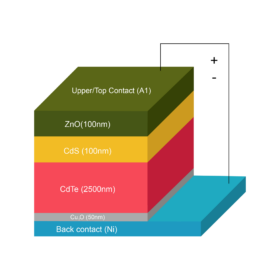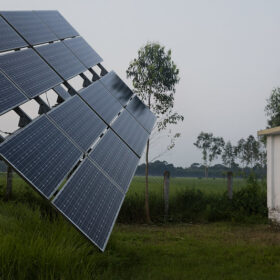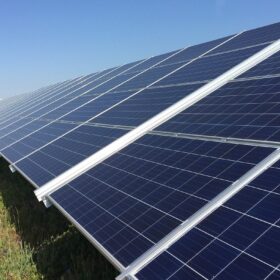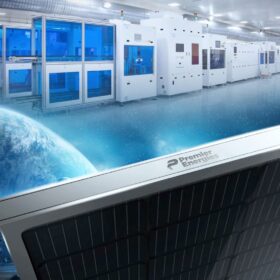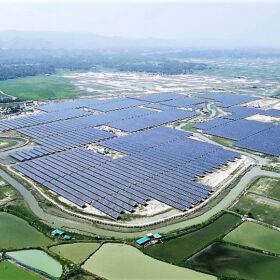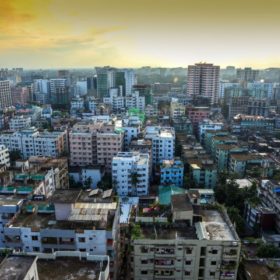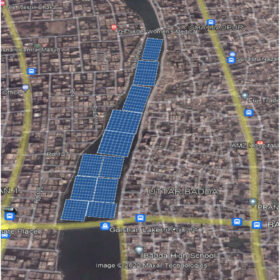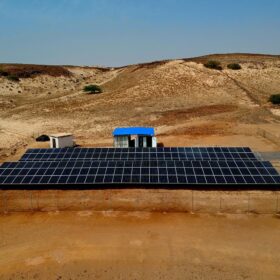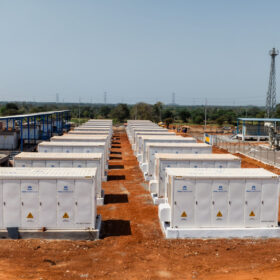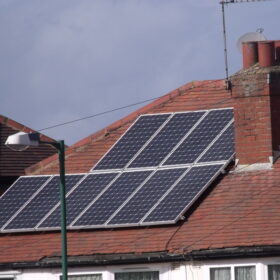Novel cadmium telluride solar cell design with potential efficiency of 31.82%
Scientists in Bangladesh designed a cadmium telluride solar cell with upper/top and back contact materials made of aluminum (Al) and nickel (Ni). The device reportedly showed a quantum efficiency of around 100 % at visible wavelengths.
Bangladesh introduces rooftop PV requirement for big, new buildings
Bangladesh has implemented a new rule stating that new buildings with rooftop spaces exceeding 92.2 square meters must install net-metered solar power systems as a prerequisite for grid connection.
Researchers claim PV near railway tracks is technically feasible
Despite soiling and mechanical stress, PV deployed between or close to rail tracks is not just a crazy idea, states a Bangladeshi-Australian research group. The scientists conducted a techno-economic analysis on a 128 kW demonstrator and found it may achieve a levelized cost of energy of only $0.052/kWh.
Large-scale PV projects proliferate in Bangladesh
The Bangladeshi authorities have been approving or reviewing three more large scale solar power projects, for a total capacity of 300 MW.
Premier Solar, Amara Raja Infra JV wins $130 million contract in Bangladesh
Premier Solar Powertech, in a joint venture with Amara Raja Infra, has secured a $130 million PV contract in Bangladesh. The company will provide technical support and supply 140 MWp of high-efficiency solar panels to the project.
Amara Raja secures 100 MW solar project in Bangladesh
Amara Raja Group’s EPC arm has secured the contract to build a 100 MW (AC) solar plant in Bangladesh. The $130 million project is funded by the EXIM Bank of India.
Bangladesh improves conditions for domestic independent power producers
The government of Bangladesh has taken steps to improve conditions for independent power producers (IPPs) that develop utility-scale projects, in order to attract more domestic investments in solar and renewables.
Faster electric car rollout in Bangladesh demands policy support
The economic burden of air pollution in Bangladesh, for which transport is one of the major reasons, calls for strong policy-level intervention to increase the adoption of electric cars.
Floating solar may reach LCOE of $0.0341/kWh in Bangladesh
New research shows that floating PV plants may have superior generating capabilities compared with ground-mounted PV plants in several areas of Bangladesh. Furthermore, the study indicates that floating arrays in the country may reach a levelized cost of energy ranging from $0.0341/kWh to $0.0486/kWh depending on the location.
Bangladesh introduces fiscal breaks for solar-powered water desalination
Bangladesh has introduced tax exemptions to reduce water production costs and promote the use of solar power in 19 coastal districts. This initiative comes in response to grid electricity shortages caused by a decline in coal and fuel imports. The goal is to enhance reliance on solar-powered water desalination in these areas.
